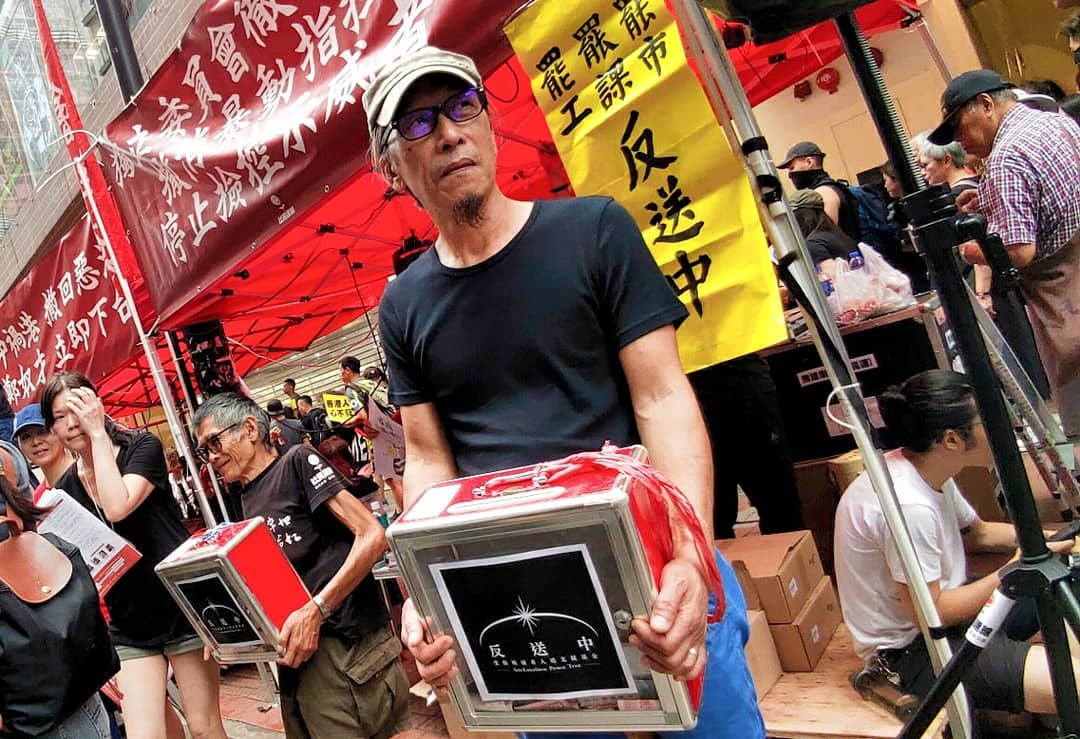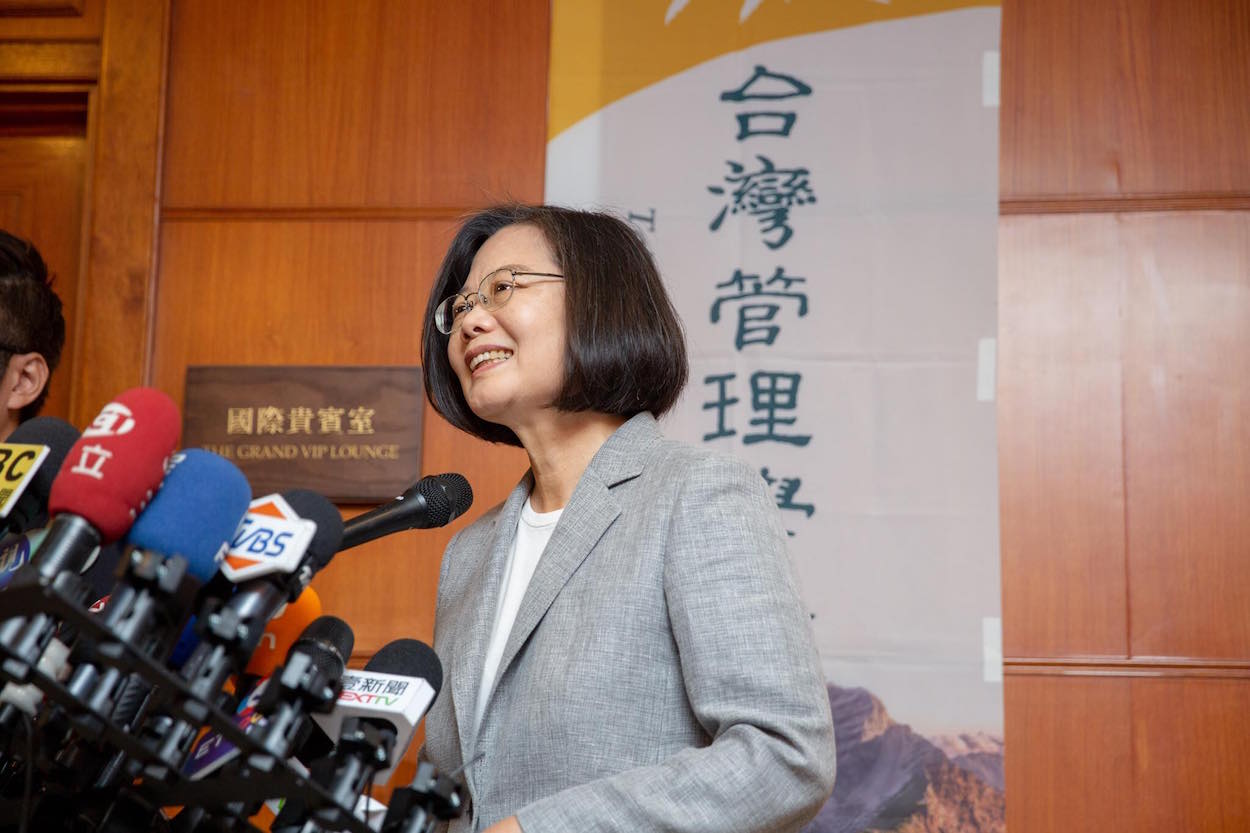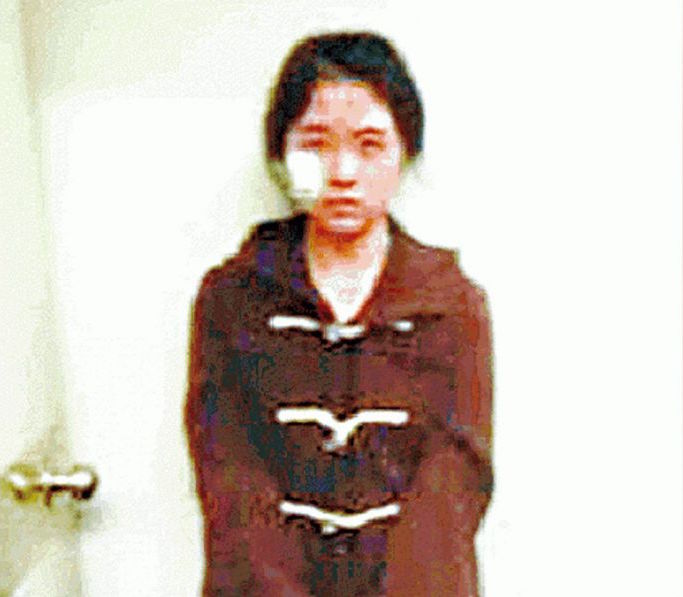by Brian Hioe
語言:
English
Photo Credit: Civic Party/Facebook
DESPITE THE narrative in international media that the Tsai administration has offered aid to Hong Kongers seeking to settle in Taiwan, the Tsai administration still has not taken adequate steps to provide refuge for Hong Kongers. Namely, Taiwan continues to lack any formal systematic process for asylum applications and the Tsai administration has, in fact, backed down from taking more concrete steps to assist Hong Kongers in establishing such a process, something that one notes in carefully evaluating the shifts in the Tsai administration’s rhetoric regarding Hong Kong in past weeks.
 Photo credit: League of Social Democrats/Facebook
Photo credit: League of Social Democrats/Facebook
It should be clear that Hong Kong is becoming an increasingly dangerous place for participants in the demonstrations which have rocked Hong Kong for the last two months. This is due to rampant police brutality and attacks on demonstrations by pro-Beijing triad members, usually to police inaction. Prominent recent examples include a stabbing incident yesterday night in which three individuals were stabbed, with one remaining in critical condition, and police reportedly doing little to track down the culprit. It is also a strong possibility that participants in demonstrations may face years in jail for participating in protest, as in the possibility of facing up to ten years in jail on charges of “rioting” or five years in jail on charges of “unlawful assembly.”
The Tsai administration previously suggested that it would provide aid for Hong Kongers in July, after the attempted storming of the Hong Kong Legislative Council (LegCo) by a group of demonstrators. Notably, demonstrators cited the 2014 Sunflower Movement in Taiwan as a precedent during the brief time they were in LegCo and wrote ‘Sunflower HK” on the wall of LegCo. In public comments in July, Tsai stated “friends from Hong Kong” would be treated “appropriately and on humanitarian grounds.”
It is unlikely, however, that the Tsai administration expected so many Hong Kongers to flee to Taiwan immediately after the attempted LegCo occupation. The first reports of protesters fleeing to Taiwan took place immediately after the LegCo siege, prompting a scramble among Taiwanese media as to if any of them would come forward openly with their identities. Though none did so at the time, the Apple Daily eventually reported that upwards of thirty Hong Kong protesters had already fled to Taiwan, with the possibility of another wave of thirty individuals also coming to Taiwan.
The Tsai administration previously struggled to handle simply five asylum cases, primarily involving Chinese nationals or Hong Kongers, and seemed to prefer to handle them on an ad hoc basis rather than setting up any routinized, formal process for processing asylum applications. It is very likely that the Tsai administration did not want to attract a wave of asylum seekers, this proving another issue in which the Tsai administration has proven strangely cautious for fear of upsetting China.
As such, it is unlikely that the Tsai administration has any current solution to the wave of Hong Kong asylum seekers in Taiwan. Comments last week by Chiu Chui-cheng, a spokesperson for the Mainland Affairs Council, stated that cases for asylum will continue to be handled on a case by case basis, in effect, stating that the Taiwanese government’s current position is that the existing rules are fine and that there will be no systematic means of dealing with asylum cases established. Chiu also reiterated Tsai’s claims that aid will be provided to Hong Kongers, but did not give any details on what kind of aid would be provided. The disinterest of the Tsai administration in setting up any systematic asylum process has led to criticisms from Taiwanese human rights NGOs such as the Taiwan Association for Human Rights.
 President Tsai Ing-wen. Photo credit: Tsai Ing-wen/Facebook
President Tsai Ing-wen. Photo credit: Tsai Ing-wen/Facebook
Ironically, the current set of protests began in response to an extradition agreement that the Hong Kong government proposed passing because of a Hong Kong murder case which took place in Taiwan, but in which the murderer was unable to be deported to face charges in Taiwan in the absence of any extradition agreement between Taiwan and Hong Kong. In the wake of the protests, the Taiwanese government has stated that it will not sign any extradition treaty with Hong Kong. But this continued lack of any extradition agreement with Hong Kong, combined with other factors such as Hong Kong’s geographic proximity to Taiwan, is probably why so many Hong Kongers have turned to Taiwan.
It is further ironic to note that accusations from the Chinese government that the Tsai administration is one of the foreign forces it claims are instigating the current protests in Hong Kong have been a continual refrain through demonstrations to date. The Chinese government itself perceives the Tsai administration as offering asylum to Hong Kongers and has lashed out at the Tsai administration as such.
But in attempting to emphasize that the existing channels for seeking asylum are sufficient with the hopes of avoiding an influx of asylum seekers in Taiwan, the Tsai administration may be hoping to redirect Hong Kongers to other paths of seeking residency in Taiwan, such as pursuing employment in Taiwan, starting businesses to obtain entrepreneurship visas, or seeking further education as a means of obtaining student visas. Hong Kong immigration to Taiwan has already increased by 28% and Taiwanese academics have been among those to call for further scholarships to be made available to Hong Kongers.
That being said, the most secure way of seeking residency in Taiwan for Hong Kongers does, in fact, seem to be starting businesses. However, this in itself can still be an uphill challenge, as can be observed in that no less famous an individual than Lam Wing-kee, the only one of Causeway Bay booksellers to currently remain free, has had difficulty obtaining sufficient investment to reopen his bookstore in Taiwan. Lam’s difficulties reopening his bookstore has thus far led the Taiwanese government to periodically extend his current residency permit when it comes close to expiring but raises questions as to whether the Taiwanese government will eventually force Lam to return to Hong Kong if he is unable to secure sufficient funding.
Indeed, in the absence of setting up a systematic means of processing applications from Hong Kongers and others seeking refuge in Taiwan, it is probable that only the wealthy will be able to secure residency in Taiwan through existing immigration laws. Taiwan will become a refuge for Hong Kong’s oligarchs, rather than the young people participating in demonstrations, who may lack the sufficient economic means to start businesses or even pursue further education as a means of obtaining residency in Taiwan at a time of stark socioeconomic inequality in Hong Kong.
 Lee Sin-yi
Lee Sin-yi
Consequently, it is very probable that young people participating in demonstrations that seek refuge in Taiwan will instead simply overstay their visas while attempting to keep out of the sight of Taiwanese authorities. This is the course of action taken by localist activist Lee Sin-yi, who participated in the events of the February 2016 Fishball Revolution. With the possibility of facing years behind bars on charges of “rioting”, Lee fled to Taiwan in January 2017 after entering Taiwan on a one-month tourist visa. Lee was then eighteen.
Lee has not left the country since then, having likely been in hiding for what is now close to three years. However, Taiwanese law enforcement stated that they would be seeking Lee after a recording purporting to originate from Lee surfaced in May, as released by the post-Sunflower Movement Third Force party, the Taiwan Statebuilding Party. Lee warned in the recording that the imminent passage of the extradition bill would likely lead to more cases like hers in the future, a prediction that seems to have come true.
As should be obvious, even in the absence of an extradition treaty between Hong Kong and Taiwan, Taiwanese authorities are actually legally obligated to deport individuals that overstay their visas such as Lee. And in the absence of any asylum process which allows for more than the wealthy to seek residency in Taiwan, it is almost inevitable that there will be more cases such as Lee’s.
If the Tsai administration does not wish to subject the world to the spectacle of Taiwanese law enforcement deporting young demonstrators to Hong Kong, then, urgent action is needed.

